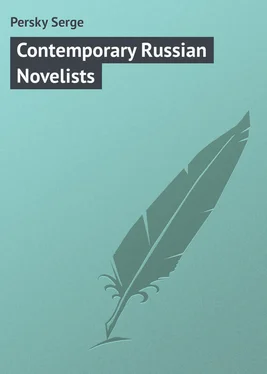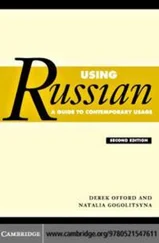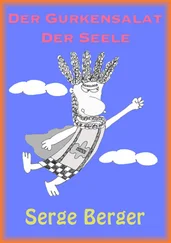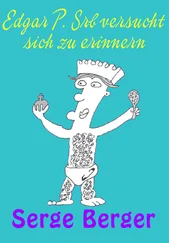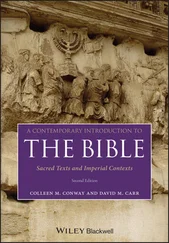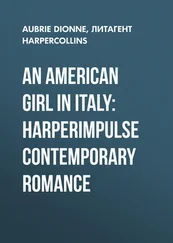Serge Persky - Contemporary Russian Novelists
Здесь есть возможность читать онлайн «Serge Persky - Contemporary Russian Novelists» — ознакомительный отрывок электронной книги совершенно бесплатно, а после прочтения отрывка купить полную версию. В некоторых случаях можно слушать аудио, скачать через торрент в формате fb2 и присутствует краткое содержание. Жанр: Русская классическая проза, на английском языке. Описание произведения, (предисловие) а так же отзывы посетителей доступны на портале библиотеки ЛибКат.
- Название:Contemporary Russian Novelists
- Автор:
- Жанр:
- Год:неизвестен
- ISBN:нет данных
- Рейтинг книги:3 / 5. Голосов: 1
-
Избранное:Добавить в избранное
- Отзывы:
-
Ваша оценка:
- 60
- 1
- 2
- 3
- 4
- 5
Contemporary Russian Novelists: краткое содержание, описание и аннотация
Предлагаем к чтению аннотацию, описание, краткое содержание или предисловие (зависит от того, что написал сам автор книги «Contemporary Russian Novelists»). Если вы не нашли необходимую информацию о книге — напишите в комментариях, мы постараемся отыскать её.
Contemporary Russian Novelists — читать онлайн ознакомительный отрывок
Ниже представлен текст книги, разбитый по страницам. Система сохранения места последней прочитанной страницы, позволяет с удобством читать онлайн бесплатно книгу «Contemporary Russian Novelists», без необходимости каждый раз заново искать на чём Вы остановились. Поставьте закладку, и сможете в любой момент перейти на страницу, на которой закончили чтение.
Интервал:
Закладка:
They are valued in an entirely different way by Chernyshevsky in his novel, "What Is To Be Done?" where the author, one of the most powerful representatives of the great movement toward freedom from 1860 to 1870, carefully studied the bases of the new morals and the means to be used in struggling against the prejudices of the old society. Finally let us mention Tolstoy, whose entire literary activity was a constant search for truth, till the day when his mind found an answer to his doubts in the religion of love and harmony which he preached from then on.
The earnestness which sees an apostle in a writer has not ceased to grow and has almost blinded the public.
For example, Gorky needed only to write some stories in which he places before us beings belonging to the most miserable classes of society, to be suddenly, and perhaps against his own will, elevated to the rôle of prophet of a new gospel, of annunciator from whom they were waiting for the Word, although one could also find the Word in the anti-socialistic circles which he depicts. Another contemporaneous author, Tchekoff, once wrote a story about the precarious position of the workingman in the city; he showed how this man, after he had become old and had gone back to his native village, suffered even more misery than before instead of getting the rest he had hoped for. Immediately an ardent controversy took place between the two factions of the youth of that time, the Populists and the Marxists. The former, defending the rural population, accused the author of having exaggerated and of having only superficially considered the question, while the others triumphed, confident in the activity of the people of the city.
The literary critic, however, in carefully studying the works of these authors, tried to get at the real meaning, – the idea between the lines. Gorky's philosophy has often been discussed; a great many men of letters have tried to unravel what there was of pessimism, of indifference or of mystic idealism in the soul of Tchekoff. This everlasting habit, not to say this mania, of analyzing the mind or soul of an author in order to get at his conception, his personal doctrine of life, often leads to partial and erroneous conclusions, especially when, as in most cases, the critic has only a very vague idea of the main current of thought which formed the genesis of the work.
The hopes and emotions which are aroused by every original expression in literature, show more than ever what hopes are based upon its rôle, the mission which has devolved on it to serve life, by formulating the facts of the ideal to be realized.
But what is this ideal? What are these ideal aspirations? Of what elements are they made up? What is the state of mind of the great majority of Russian "intellectuals" in the midst of the enmity which compromises and menaces them?
Thanks to the window pierced by Peter the Great in the thick Muscovite wall, the Russian "intellectuals" have begun to have a general idea of European civilization. They have admired the beauty of this culture, and the greatness of European political and social institutions, guarantees of the dignity of human beings; they have endured mental suffering because they have found that in Russia such independence would be impossible, and, consequently, they have had a feeling of extreme bitterness, which has forced them either to deny or calumniate the moral forces of their country, or to formulate very strange theories about this situation. Thus at the end of the first twenty-five years of the century, Chadayev, one of the most original and brilliant thinkers of Russia, developed the following thesis in his "Philosophical Letters": – the fatal course of history having opposed the union of the Russian people with Catholicism, through which European civilization developed, Russia found herself reduced forever to the existence of an inert mass, deprived of all interior energy, as can be shown adequately by her history, her customs, and even the aspect of her national type with its ill-defined traits and apathetic expression.
In the course of the terrible struggle which he waged against the censorship and against influential persons evilly disposed toward him, Pushkin cried out: "It was the idea of the devil himself that made me be born in Russia!" And in one of his letters, he says, "Naturally, I despise my country from east to west, but, nevertheless, I hate to hear a stranger speak of it with scorn." Lermontov, exiled to the Caucasus, ironically takes leave of his country, which he calls, "a squalid country of slaves and masters." And he salutes the Caucasian mountains as the immense screen which may hide him from the eyes of the Russian pachas. The Slavophiles themselves, the patriots who in their way idealized both Russian orthodoxy and autocracy, and who were wrongly considered the champions of the existing order of things, showed themselves no less hostile. One of their most celebrated representatives, Khomyakov, sees in Russia "a land stigmatized" by serfdom, where all is injustice, lies, morbid laziness and turpitude.
Dostoyevsky, who shared some of the illusions of the Slavophiles, speaks of Europe as "a land of sacred miracles." Nevertheless, yielding to his desire to heighten the prestige of his country, he adds: "The Russian is not partially European, but essentially so, in the very largest sense of the word, because he watches, with an impartial love, the progress achieved by the various peoples of Europe, while each one of them appreciates, above all, the progress of his own country, and often does not want to let the others share it."
In spite of the seductive powers which European civilization exercised upon Russia, the Russians perceived its weak sides, which they studied by the light of the ideal which they promised themselves to attain in some indefinite future, a future which they nevertheless hoped was near at hand.
To them, enthusiastic observers that they were, these defects became more apparent than to the Europeans themselves; as their critical sense was not deadened by the wear of constant use, they saw in a clear light the inconveniences of certain institutions, they perceived the sad consequences of the excessive triumph of individualism in its struggle for life, the enfranchisement of the proletariat, the satisfaction of the few at the cost of the many. At times the bases of this civilization seemed fragile to the Russians; they had a feeling that it was not finished; they also aspired more and more to the harmonious equilibrium of society which appealed to their ideal.
In a word, that which has always been called socialism, has had an irresistible attraction for the more intelligent Russians; all of Russian literature is permeated with it, and it has developed all the more easily because it found a favorable basis in Russia's natural democracy.
During the period when this literature was most persecuted – that is to say in the second half of the 19th century – its most influential representatives were ardent socialists. Among them should be mentioned the critic Byelinsky, the "Petracheviens," – adepts in the doctrine of Fourier, – and that powerful agitator of ideas, Hertzen, who founded the Russian free press in London. Among Western writers, there were two well liked in Russia: George Sand and Charles Dickens. The former was a socialist, the latter was a democrat. Their influence was very great in Russia; their works were read with ardor, and gave rise to thoughts which escaped the severities of the censor, but betrayed themselves in private conversation, as well as in certain literary circles.
All the celebrated writers of Europe who professed liberal tendencies met with a greater sympathy among the Russians of that time than in their own country. Dickens, received with great enthusiasm in Russia, was not appreciated by the English public. His excellent translator, Vedensky, tried hard to persuade him to come to Russia to live, where his talents would be valued at their true worth. We can then readily understand how Dostoyevsky, in his "Memoirs of an Author," had the right to say that the European socialistic-democrats had two countries, first their own, then Russia.
Читать дальшеИнтервал:
Закладка:
Похожие книги на «Contemporary Russian Novelists»
Представляем Вашему вниманию похожие книги на «Contemporary Russian Novelists» списком для выбора. Мы отобрали схожую по названию и смыслу литературу в надежде предоставить читателям больше вариантов отыскать новые, интересные, ещё непрочитанные произведения.
Обсуждение, отзывы о книге «Contemporary Russian Novelists» и просто собственные мнения читателей. Оставьте ваши комментарии, напишите, что Вы думаете о произведении, его смысле или главных героях. Укажите что конкретно понравилось, а что нет, и почему Вы так считаете.
